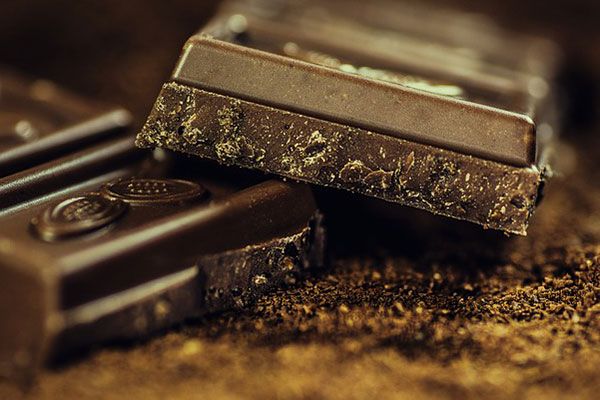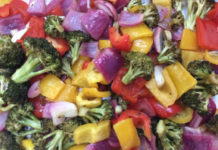 By Sangeeta Pradhan
By Sangeeta Pradhan
INDIA New England Nutrition Columnist
If you are one of the many folks who recently tossed the olive oil in favor of coconut oil, read on•you definitely do not want to miss this one..
Is saturated fat the real culprit?: The relationship between saturated fats and an increased risk of heart disease has been well established in the medical literature. In March 2014, however, a systematic review and meta analysis published in the Annals of Internal Medicine muddied the waters, suggesting that there was no evidence linking saturated fat to heart disease. It concluded, “Current evidence does not clearly support cardiovascular guidelines that encourage high consumption of polyunsaturated fatty acids and low consumption of total saturated fats”.
Media reaction: A media frenzy ensued with popular media articles such as the NY Times calling for the return of butter and other saturated fats. In my own practice, I encountered patients who were getting increasingly confused and sadly disillusioned with all the mixed messages they were receiving. As it turns out, the study was deeply flawed, and was greeted with staunch opposition. One expert, Dr. Walter Willet, chair of the Department of Nutrition at Harvard School of Public Health, called the findings into question.
What are we substituting for saturated fats?: What’s important to note here is the kinds of foods that we are substituting for saturated fats, as we knock them out of, or at least limit their intake in our diets. Most folks do not simply eliminate saturated fats in their diet. They replace them with something else to keep the calorie intake consistent. When these fats get replaced with refined and processed carbs, (think fat-free animal crackers or fat-free pretzels), the subsequent spike in blood glucose can release a large amount of insulin from your pancreas, raise a form of fat in your blood called triglycerides and lower your healthy or HDL cholesterol. Thus the replacement of saturated fats with refined carbohydrates can be even more detrimental to health.
Butter contains approximately 68% saturated fatty acids and is considered a form of saturated fat. © Copyright 2015 Sangeeta Pradhan, RD, LDN, CDE
Butter contains approximately 68% saturated fatty acids and is considered a form of saturated fat.
On the flip side when you replace saturated fats with unsaturated fats (mono and poly), this can favorably impact your cholesterol levels-ie lower LDL ( lousy cholesterol) and raise HDL. (As an example, you may want to start sautéing vegetables in olive oil as opposed to drizzling them with butter)
Another food that has been touted by the media most recently as the next super food, is coconut. Coconut’s claim to fame may have come about because more than half of the fatty acids it contains are medium chain fatty acids called MCTs (the fatty acid chains in MCTs have between 8 to 12 carbon atoms). Recent studies show that MCTs are more readily oxidized by the body and hence not as easily stored as fat, compared to LCTs or long chain triglycerides. This confers a distinct advantage for those of us who are eternally fighting the battle of the bulge, and who would like to lose weight. What is interesting about MCTs is that they are able to bypass a metabolic route in the body that other fats such as olive oil cannot.
91% of the fat in coconut is saturated, far outstripping butter at 68%.
91% of the fat in coconut is saturated, far outstripping butter at 68%.
Eager to cash in on coconut’s many purported benefits, food manufacturers started adding coconut and coconut oil to a variety of commercial products such as spreads, smoothies and creamers to name a few, thus fueling a coconut propaganda that had a lot of gullible consumers making a bee line for coconut based products.
However, the studies in question contained MCTs with eight and 10 carbon fatty acid chains and not 12 carbon fatty acids. Since almost half of coconut oil ( 44%) consists of 12 carbon fatty acids and 16% contains 14 carbon fatty acids, the results were not directly applicable to coconut oil. Besides, at about 91% saturated fat, coconut oil has the dubious distinction of containing the highest amount of saturated fat among all oils, outstripping even butter which contains about 68%. Saturated fat raises HDL, but unfortunately raises LDL too, so at this time, experts recommend that consumers use coconut oil sparingly.
Chew on this: That being said, small amounts of saturated fats are acceptable (between 7 to 10% of total calories ) which amounts to about 140-200 kcals per day on a 2000 calorie diet. Since fat yields 9 kcals/gram, that is about 15 grams or slightly more, of saturated fat per day. A tablespoon of butter provides 7 grams of saturated fat, and a 1/2 cup serving size of some brands of ice-cream can provide a mind-blowing 10-12 grams of saturated fat, demonstrating how easy it is to plow through your allowance quickly if you ate those foods. If you thought that was bad, coconut oil tops both these products with a whopping 12 grams of saturated fat in just one tablespoon.
Coconut, a very common ingredient in South East Asian curries contains the highest amount of saturated fat amongst oils. © Copyright 2015 Sangeeta Pradhan, RD, LDN, CDE
Coconut, a very common ingredient in South East Asian curries contains the highest amount of saturated fat among oils.
Moral of the story : The current scientific consensus is that we replace saturated or trans fats in our diets with unsaturated fats. Experts advise emphasizing mono unsaturated fats from olive oil or whole plant fats such as nuts, avocados, or PUFAs (polyunsaturated fats) such as omega-3 fatty acids from fatty fish, walnuts and flaxseed. Replacing saturated and trans fats with refined carbs is not recommended at this time. Although small amounts of coconut may be acceptable, as in those amounts coconut oil could be worked into one’s saturated fat allowance of 7-10% of total calories, we would want to think twice before sprinkling coconut in every recipe or smoothie.
At the end of the day, whole foods and dietary patterns count, not isolated nutrients. Based upon this, a dietary pattern that emphasizes whole foods with fresh fruits, vegetables, legumes, whole grains, olive oil, nuts and fatty fish such as a Mediterranean style diet might be the ticket to optimal health.
Disclaimer: This article is for informational purposes only and should not be construed as medical advice. Please consult your doctor or registered dietitian for recommendations tailored for your unique needs.
(Pradhan is a Registered Dietitian and Certified Diabetes Educator.)














